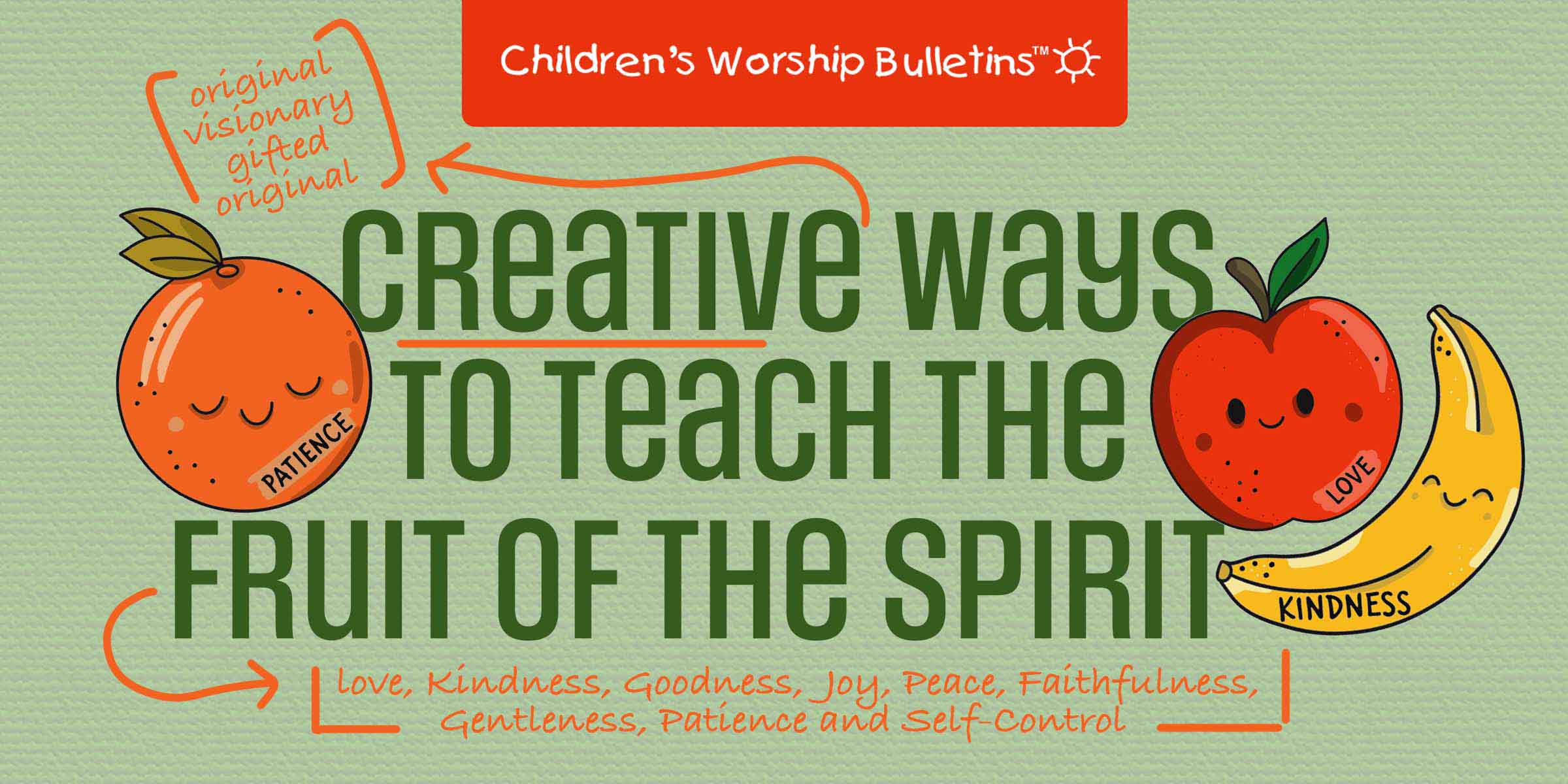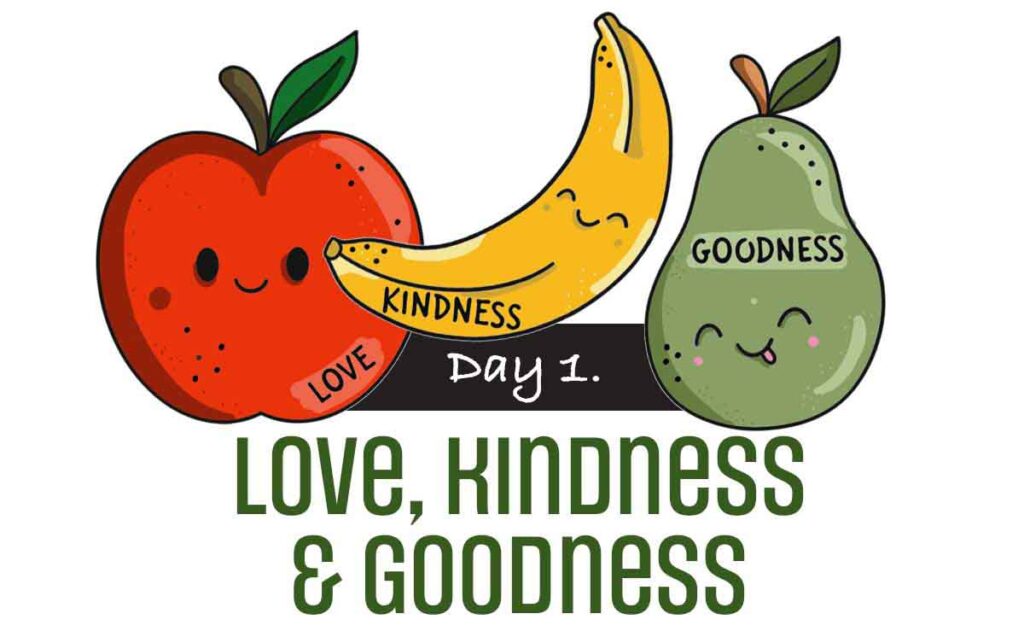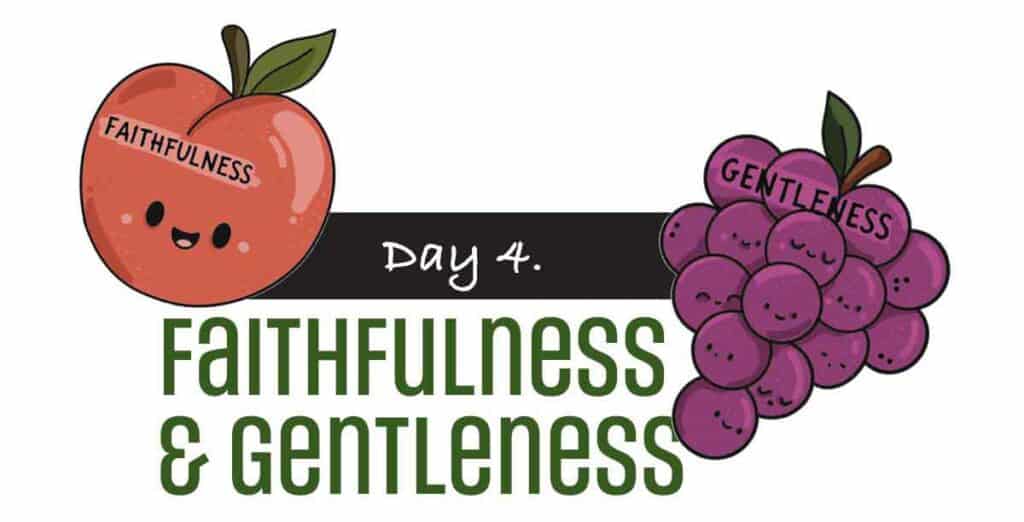Creative Ways to Teach the Fruit of the Spirit: Engaging and Impactful Activities for Children

Have you ever seen a child show unexpected kindness? It brings tears to your eyes! This summer, I had the joy of instructing a group of children about the Fruit of the Spirit during Vacation Bible School. It was deeply rewarding to witness their understanding grow and see them apply these values throughout the week. Below, I share the concepts and activities that resonated with them and brought the lessons to life.
Understanding the Fruit of the Spirit
Fruit is vibrant, flavorful, and nourishing—just like the spiritual qualities described in Galatians 5:22–23: Love, joy, peace, patience, kindness, goodness, faithfulness, gentleness, and self-control.
These virtues and traits reflect the character of Jesus Christ and grow in us as we follow Him. Just as physical fruit strengthens our bodies, spiritual fruit nurtures our hearts and guides our actions through the power of the Holy Spirit.
As followers of Jesus, we strive to reflect His character in our daily lives. The fruits of the Spirit guide us in that journey. These qualities can be difficult to change on our own, but when we intentionally seek to grow in them, we begin to see opportunities to live more like Jesus in everyday moments. When challenges arise, we can lean on these qualities and choose to respond in ways that honor God. A simple Bible verse can be a reminder and encouragement to practice these virtues.
Teaching the Fruits of the Spirit to Children: Lessons and Activities
Day 1. Love, Kindness, and Goodness
Lesson Points: Jesus demonstrated these traits throughout His ministry—healing the sick (love), comforting the grieving (kindness), and obeying God’s will perfectly (goodness). Explore how love puts others first, and how kindness and goodness express love through action. Encourage kids to notice the surprise and joy in the eyes of another child when they ask someone lonely to join in, share a special toy, or offer a helping hand.

Activities: Have children create thoughtful cards for someone who might be lonely or going through a challenging time. Supplies included blank cards, stickers, Bible verses, and craft materials. Delivering these cards can be a joyful experience.
Song Recommendation: “Fruit of the Spirit” by Bob Baxter (available on YouTube) is a favorite among children.
Snack Time: A fruit smoothie serves as both a snack and an object lesson! Blend a smoothie using different fruits, each representing a trait. Talk about how all the fruits together make something delicious—just like how all the traits together reflect a Christ-like life.
Day 2. Finding Joy
Lesson Points: Discuss how joy is a choice, even when circumstances feel unfair. Jesus brings us joy when [He said], “Let the little children come to me, and do not hinder them, for the kingdom of heaven belongs to such as these” (Matthew 19:14). Encourage kids to find joy and gratitude in all aspects of their lives.

Using real fruit helps connect physical traits to spiritual truths to make the lesson concrete:
- Apple: Beautiful outside but sometimes flawed inside, reminding us to be genuine and not just appear joyful.
- Pineapple: Rough exterior, sweet inside—like someone softened through God’s love.
- Grapes: Bunched together—symbolizing community and support.
- Watermelon: Seeds to discard—like unhealthy habits that hinder spiritual growth.
- Lemon: Bright but sour, teaching that appearances can be deceiving.
Treasure Hunt Activity: Fruit-themed treats hidden with clues encouraged patience, teamwork, and joy.
Craft: Fruit of the Spirit Basket: A fun craft from Children’s Worship Bulletins encourages kids to think about God’s bountiful blessings in a creative way.
Day 3. Peace
Lesson Points: Peace is not just the absence of conflict—it is trusting God even in difficult moments. Showing love, kindness, goodness, and self-control can often diffuse tense situations. The fruits of the Spirit help us to be sorry and apologize when we hurt others. But the greater peace comes from God. Our Almighty Father knows and understands all, and He will never leave us or forsake us. When we grasp this truth through the Holy Spirit, we can feel deep inner peace and trust.

Activity: Peaceful Breaths—practice a breathing exercise: inhale God’s love and protection, exhale worries and fear.
Fruit in Action Journals: Provide small notebooks where kids can draw or write about moments when they practiced Fruit of the Spirit traits—like when they felt peace, showed love, or exercised patience. This encourages reflection and helps them see their growth.
Puzzles and Coloring Pages: Available from Children’s Worship Bulletins, these activities reinforce lessons and provide extra fun for early finishers.
Day 4. Faithfulness and Gentleness
Lesson Points:
- Faithfulness: Being dependable, truthful, and trustworthy. God is always faithful to us, fulfilling His promises. Jesus is our perfect example—faithful to God’s will, even unto death on the cross.
- Gentleness: It is not always easy to be gentle with our words and actions. When angry, we may want to strike out, but gentleness diffuses fear and conflict. Abigail showed gentle wisdom when she prevented David from acting in anger (1 Samuel 25). Jesus Himself showed gentleness, longing to gather Israel like a mother hen gathers her chicks (Matthew 23:37).

Activities:
- Skits: Children act out scenarios, including the David and Abigail story, while peers identify which Fruit of the Spirit traits are displayed.
- Role-Play Challenge Cards: Real-life scenarios (e.g., “Your friend is sad,” “You must wait your turn,” “Someone is being unkind”) give children chances to practice gentleness and faithfulness.
Day 5. Patience and Self-Control
Lesson Points: Patience and self-control can be difficult for both children and adults. Tiredness, hunger, or anxiety make it harder to show these traits. Waiting builds trust, and God’s love helps us manage impulses. Jesus showed patience with His disciples, who often misunderstood Him, and He displayed perfect self-control when tempted and exhausted.
Interactive Games: Balloon toss and popcorn popping. Children shout out a Fruit of the Spirit with each toss or pop. This helps reinforce the words quickly while also practicing patience and self-control.

Activities:
- Fruit of the Spirit Garden Wall: Create a bulletin board or mural where each child adds a “fruit” with their name and the trait they want to grow in. Over the week, they add stickers or drawings to track their progress.
- Fruit of the Spirit Family Challenge: Send home activities families can do together (e.g., “Show kindness by helping with chores,” “Practice patience while waiting in line”).
Closing Thought
As we endeavor to incorporate these fruits into our lives and the lives of the children we serve, may these ideas inspire others to share these beautiful truths in fun, meaningful ways. Teaching the Fruit of the Spirit is more than a Bible lesson—it’s planting seeds of character that will grow for a lifetime and spread across generations of believers.

Author Bio:
Shirley Vaughn
Shirley Vaughn is currently a children's ministry contributor for Communication Resources. She worked as the senior editor for Children's Worship Bulletins for many years but has since mostly retired. Shirley grew up in Australia, where she completed her teacher training, but later moved to the USA with her husband. Being involved in children's ministry and sharing God's love with young ones has been a lifelong commitment. Over the years, Shirley has been deeply involved in Children’s Worship Bulletins, Sunday school teaching, VBS programs, youth ministry, and women's ministry, both in the USA and overseas. She believes that children are a precious heritage from the Lord and finds great joy and purpose in sharing God’s love and hope with them. Now semi-retired, she does freelance work and enjoys spending time with her many grandchildren.
